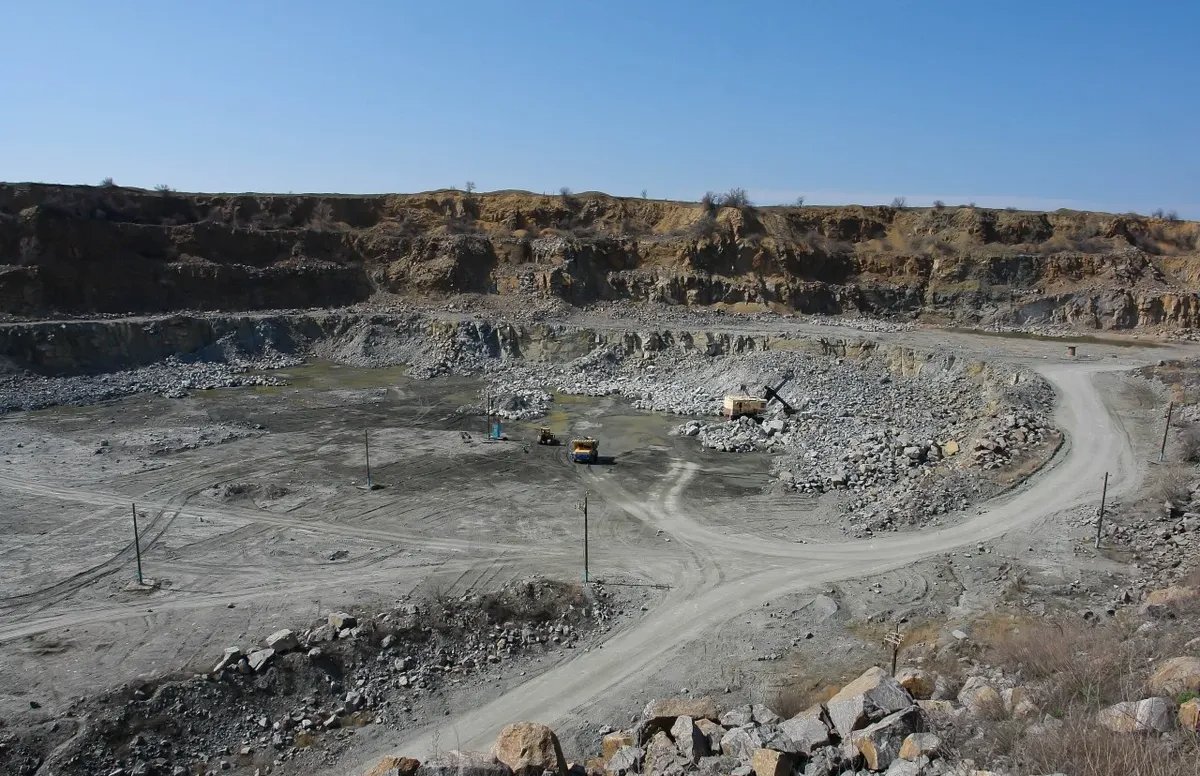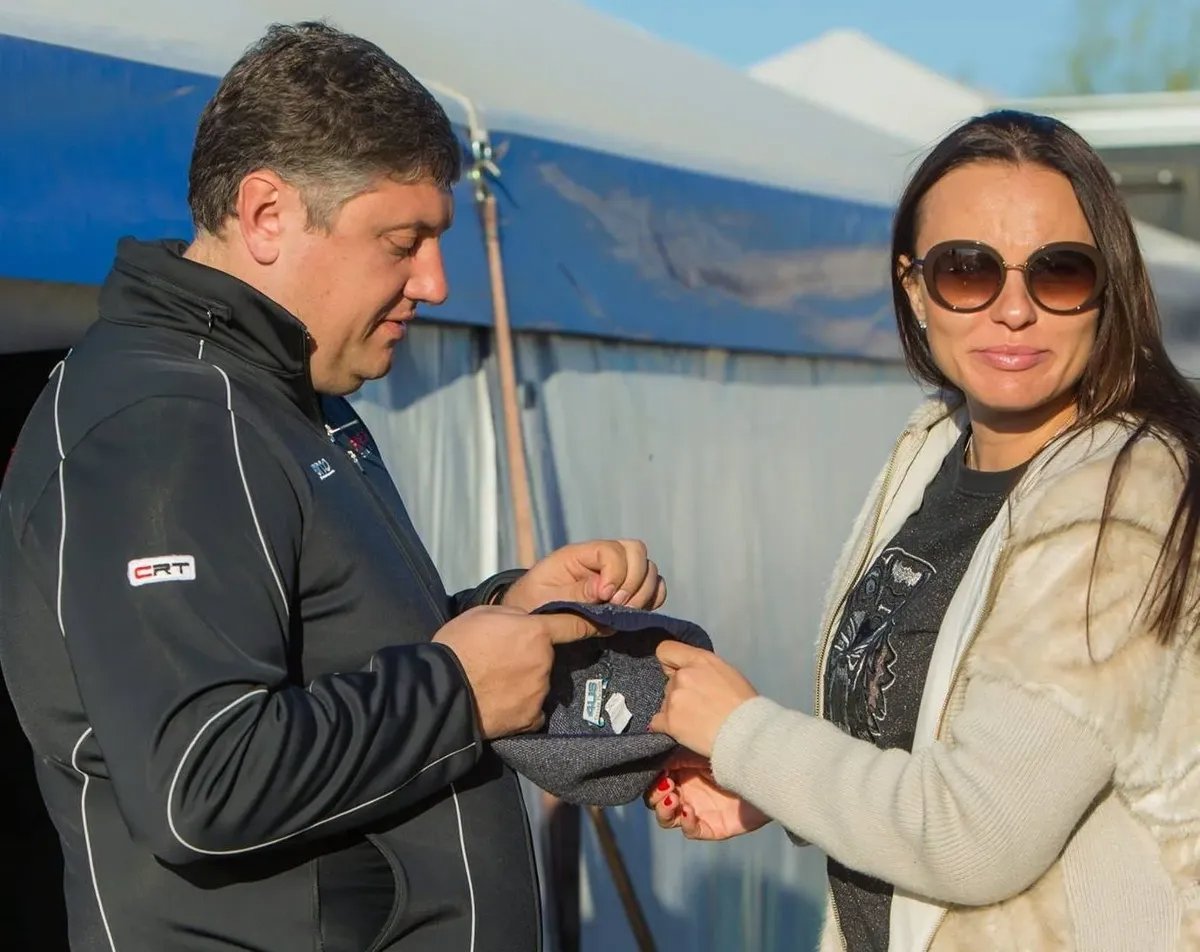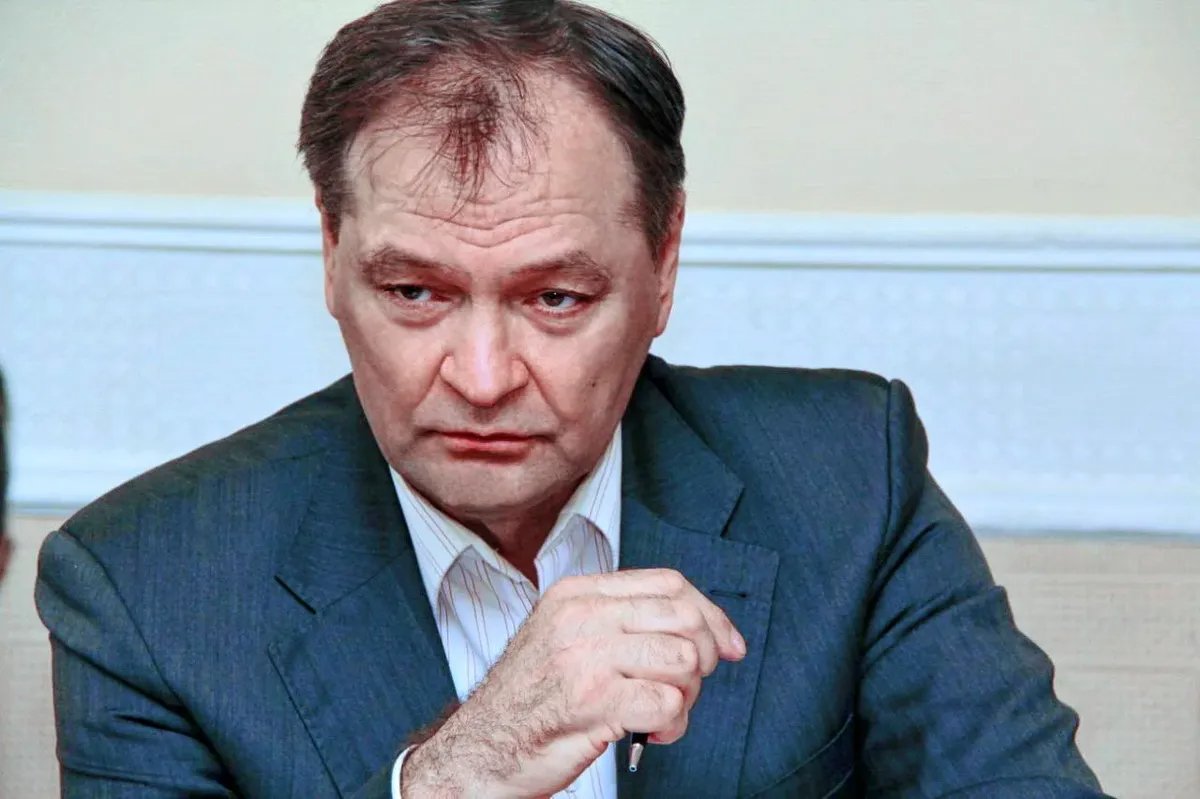A massive redistribution of assets is ongoing in the Ukrainian territories occupied by Russia: agricultural holding companies, factories, and mining plants are being taken over by Russians. Novaya-Europe has found over a thousand companies in Melitopol, Berdyansk, Mariupol, Lysychansk, and Sievierodonetsk that are now registered as Russian entities.
Here is our insight into how Russian businessmen, with the help of the military, use pillage, racketeering and theft in order to seize valuable assets.
Russian soldiers first entered the premises of farming machinery factories in Melitopol on 3 June 2022. They forced the security out and declared a change of management. Hydrosila, the rightful owner of the factories, announced that it had lost control over its assets in the Zaporizhzhia region the following day.
After two months, Russian media reported that Hydrosila had restarted shipments to Russia, and Ukraine’s Security Service accused the company of supplying Russia’s defence industry with its products.
As of December, the occupation authorities have managed to take over 400 enterprises in the Zaporizhzhia region, under the excuse of saving jobs and protecting factories from pillage. Anton Koltsov, head of the local occupation government, claims that all of those assets are now owned by the administration and will not be transferred to any new owners.
The Russian military has taken control over granaries, food production facilities, manufacturing workshops, markets, pharmacy chains, and malls. All those facilities started appearing on the Russian register of companies last autumn, and over a thousand Ukrainian companies from Mariupol, Melitopol, and other cities have been transferred into Russia’s jurisdiction so far, as per Novaya-Europe’s calculations.
Of the 1,150 companies we discovered, 80% are also on Ukraine’s register, which means they were established before the Russian troops arrived and were then transferred into Russian jurisdiction. Out of those, 250 are industrial and agricultural enterprises. The largest of them would generate an income of up to 450 million UAH prior to the war (€13.35 million in 2021), Ukraine’s register says.
Out of the 262 enterprises that have the name of their founder disclosed in Russia’s register, 20 changed their owner. The seized assets include agricultural holdings, bread baking businesses, and mining companies.
The new owners of Ukrainian businesses are mostly Russians: 150 founders of enterprises in large occupied cities have Russian citizenship, and only 14 are Ukrainian nationals. They open new production facilities or expand their companies in the occupied territories. Most frequently those are entrepreneurs from Moscow, the Rostov region, or Crimea.
Of the thousand companies in the occupied cities, only 260 have a disclosed owner. As Ilya Shumanov, CEO of Transparency International Russia, explains, this is how enterprisers try to avoid sanctions: “During the occupation of Crimea, the Russian authorities allowed the owners of Crimean companies to remain undisclosed so that they would not fall under sanctions. This creates a high risk of money laundering through corruption schemes and fraud. The same method is used in the occupied territories these days.”
According to Ukrainian data, 90% of all buildings in Mariupol were damaged by shelling, and 40% were destroyed. Russia’s authorities were planning to construct 100 thousand square metres of housing, that is, at least a thousand apartments, by the end of 2022.
For its part, Russian media reports that the entire city is one big construction site now. A total of 22 residential buildings have already been erected, including a housing complex of 50 apartment blocks with 7,690 apartments. On 19 March, Vladimir Putin visited the city to see how the reconstruction is going.
The main beneficiary of the destruction is the Russian construction industry. In only a year, the Russians established at least 17 construction companies in Mariupol. The restoration of the city turned out to be an opportunity for many to expand their Russian businesses.
Andrey Polyakov, the former owner of the Nizhny Novgorod shipyard, established a hotel in the occupied city in November, and a construction company in a neighbouring building. Alexander Dragilev brought his Architect company from Rostov-on-Don, and Timur Gabasov arrived from Voronezh.
How the Russian world seizes businesses
The granite quarry in Tokmak is the largest producer of crushed stone in the Zaporizhzhia region.
In June, armed men, alongside representatives of the military administration, entered its premises, turned off CCTV and threw the management into a dilemma: either to join the Russian jurisdiction or to leave.
The owner and the managing director of the quarry refused to cooperate with the occupation administration, and the company was seized by the state administration.
“From that moment on, I only learned something about the factory from former employees,” says Yevhen Sadzhenitsa, the manager. “It works, but there’s no maintenance at all. They do not change parts and no one follows the maintenance regulations. If there’s anything left there eventually, it would only be scrap metal”.

The Tokmak granite quarry. Photo: mirvokrugnas.com
In November, the quarry appeared on the Russian register with a new founder, a Crimean company called Centre for Economic Interaction of the Republics (CEIR). Its CEO Sergey Ageev was awarded the medal “For the Defence of Crimea” and added to the Ukrainian Myrotvorets list for being involved in the annexation of the peninsula.
We managed to reach him on the phone, but he hung up as soon as he learned that he was speaking to a journalist.
“The collaborators who stayed in Melitopol offered me to return and set up work a couple of times. So, they did not even care to reach the owner. That is, no one discussed the transfer of property with us,” says Yevhen Sadzhenitsa.
CEIR, the new founder of the plant, is engaged in trade with enterprises from the self-proclaimed Donetsk and Luhansk “people’s republics” (“LPR” and “DPR”, or “LDPR”) and also trades in metal, agricultural produce, and crushed stone.
One of the owners of the company, Elena Kozenko, is the full namesake of the wife of Andrey Kozenko, a former State Duma MP from the annexed Crimea (Kozenko is now under sanctions).
Two more founders, Vladimir Gvozdik and Yaroslav Tibekin, are business partners. Together, they created the Union of Luhansk Region Communities and the Russia-Donbass Integration Committee. Both of those entities are from Crimea, and their declared goal is to “provide support to compatriots living on the territory of the Donetsk and Lugansk People’s Republics”.
Yaroslav Tibekin is a well-known businessman from Donbas. Local media connected Tibekin with coal extraction in illegal mines, and also wrote about his work with former State Duma MP Andrey Kozenko. Yaroslav Tibekin eventually moved from Donetsk to Crimea.

Yaroslav Tibekin and Tatyana Tibekina. Photo: Facebook
His wife Tatyana Tibekina formally owns Mineral, another mining enterprise in the Zaporizhzhia region, a beer brewery, and a dairy factory.
The former owner of the latter is Roman Romanov, the secretary of the Melitopol City Council. A few months before the start of the war, his family purchased the local dairy factory. In the spring of 2022, Yevgeny Belitsky, the head of the occupation administration, seized the enterprise, and deported Romanov’s father, he says, later selling the family’s property.
At the end of November, the dairy plant resumed operation, led by the “provisional administration”. Now, as the head of the local government Anton Koltsov says, the enterprise will supply products to the “DPR”, “LPR”, Crimea, and the Krasnodar region of Russia.
Tatyana Tibekina refused to talk to us, and her husband did not pick up the phone. We also called Elena Kozenko, but the woman who picked up the phone said that we had the wrong number.
In Melitopol alone, as the mayor of the city Ivan Fedorov told us, hundreds of businessmen turned to the police and the Ukraine’s Security Service (SBU) to record the seizure of property.
On June 2, the military administration of the region nationalised the businesses left by the Ukrainians. The decree allowed real estate, land and equipment of companies that refused to register with the Russian tax authorities to be recorded on the register of “derelict property”. And then the businesses are to be transferred either to the state administration or the new owners.
During the year of occupation, the authorities of the Zaporizhzhia region recorded more than four thousand “derelict facilities”, from pharmacies to the granite quarry. Most commonly, their owners were forced to abandon their assets as the Russian troops arrived.
We have checked 1,690 facilities for which the name or type of enterprise is known in the Russian register. It turned out that 50 seized companies are now registered with the Russian Federal Tax Service.
“Derelict property is property with no owner. Ukraine has a unified state register of real estate and a register of rights to real estate, where it is completely clear who owns each property. Therefore, the owners can be verified quite easily. It is unclear why the occupation authorities are not using it,” Ilya Shumanov says.
- Deposits of coal, oil, gas and other resources
Most of Ukraine’s coal deposits are located in the east of the country, and 100 of them are occupied by Russia. The loss of control over the deposits cost Kyiv $12.4 trillion, as per The Washington Post.
- Large factories
The Russian troops pillaged BIOL, a prominent dinnerware manufacturer in Melitopol, as early as May. It can now be found in the Russian register. BIOL’s CEO is a Russian national, and its owner is classified. A similar story happened to the Melitopol Automotive Spare Parts Plant: it was pillaged by the occupiers, and is now run by a Russian businessman, a co-founder of six companies nationwide, from Moscow to the Urals.
- Agricultural lands
Prior to the war, Ukraine provided 46% of world exports of sunflower oil and 9% of wheat exports. By July 2022, Russia occupied 22% of Ukraine’s agricultural land, according to NASA Harvest.
‘We work in survival mode’
In February, the administration of the occupied Berdyansk published an announcement: documents for six derelict enterprises, including orchards and a livestock complex, need to be provided within 10 days.
Before the war, the owner of those was active on social media, but stopped his activity as the Russian troops arrived. Soon, all of his companies appeared on the Russian register under a new leader, the businessman’s partner.
“It’s all as it used to be. Thank God there were no changes,” the manager who asked to remain anonymous told Novaya-Europe. “We are one of the few companies that managed to keep its assets, and by this I mean human resources, although it was a challenging thing to do.”
The farmer decided to co-operate with Russia’s Rostov region to keep his business. “We now work in survival mode. The main thing is that we value people and do not dismiss anyone.”
In December, the Russian Federal Tax Service reported that it had registered over 30,000 legal entities in all territories occupied in 2022 (in cities with a population of over 100 thousand people, we found only 1,150 companies).
“Of course, you may keep your business outside the Russian register, but in that case all real estate and even movable property of the enterprise would be declared derelict. If you do not re-register your factory, then the rights to it will automatically pass to the Russian Federation,” Ilya Shumanov explains.
Some businessmen use property abandoned by Ukrainian enterprises as an opportunity to expand their business. Before the war, Ukrainian businessman Oleksandr Hoik only owned one fuel sales company. As the Russian military arrived, Hoik seized gas stations belonging to large chains Okko-Light and West Petrol Market Melitopol, and then used them to sell 80 tonnes of Russian fuel. He transported the fuel from Crimea, and shared his revenue with the administration. On 2 February, the prosecutor’s office of the region published a notification that the businessman was suspected of collaborationism. Hoik is also accused of illegally exporting grain.
The mayor of Melitopol says 30% of all Ukrainian entrepreneurs have not left the city and continue to do business there. An opportunity to earn a lot of money due to the shortage of food and other goods and services was their chance during wartime. However, from the viewpoint of Ukrainian legislation, registering with the Russian Federal Tax Service and paying taxes to an aggressor country is a crime.
Factories are being used for the needs of the Russian military
Before the war, about thirty enterprises in Berdyansk, including large industrial ones, were owned by the Ukrainian MP Olexander Ponomarev. The Russian military detained the businessman in March. In an act of protest, all Ponomarev’s factories shut down operation.
After being captured for 10 days, the MP was admitted to hospital, and all of his enterprises were seized by the occupation authorities on 31 October.
Among them is a large manufacturer of agricultural machinery, Berdyansk Harvesters. The factory stopped working after the city had been occupied, which became the formal reason for it to be transferred to the pro-Russian administration.

Photo: Ukrainian MP Olexander Ponomarev
In November, Berdyansk Harvesters and three other Ponomarev’s factories were handed over to new owners. After a period of idle time, the enterprises resumed their operation. Berdyansk Harvesters used to produce agricultural equipment before, but the local media say that now it supplies the Russian military with Czech hedgehogs and potbelly stoves.
More than 10 industrial enterprises in the occupied regions have already been registered with new owners. Their production has been reoriented to the Russian market, and some factories are being directly used by the authorities for the needs of the military.
In August, the We Are Together with Russia movement and the Melitopol meat packing plant signed an agreement: the company’s products were included in the humanitarian aid for “the Zaporizhzhia region residents in need”.
As of now, three companies of the holding, which includes the meat packer, can be found on the Russian register. At least one of them, the meat packing plant itself, was re-registered to a Russian owner.
Former employees of the plant say that “Chechen gunmen” entered its premises in May. A month later, the Ukrainian intelligence reported that the occupation authorities had modified the enterprise to be a morgue. It started receiving corpses of servicemen who were killed in action in the Polohy-Hulyaipole direction.
“Facilities of strategic importance or of commercial interest are the titbits that Russia wanted to pick up in the first place,” Ilya Shumanov says. “Besides, Russia cannot constantly pay out welfare.
It seeks to transfer responsibility to companies and employers and to establish subsidies for people who work in the interests of the state.”
‘Those are not liberators, those are marauders’
Having captured the south of the Zaporizhzhia region, the agrarian stronghold of Ukraine, Russia started to move out grain and agricultural machinery. According to Bloomberg estimates, Russia has stolen 6 million tonnes of grain from the occupied regions, and the total losses of Ukraine’s agricultural sector, including lost equipment, unharvested crops and the affected land, reached $34 billion by November 2022, according to the Kyiv School of Economics.
“Those are not liberators, those are marauders,” Melitopol mayor Ivan Fedorov wrote on Facebook in April 2022, adding that the Russian forces stole equipment valued at €1.5 million from local agricultural enterprise Agro-Invest. Most of the equipment had GPS trackers installed: it was transported to Crimea and Chechnya.
It is impossible for companies to receive compensation for damage from Russia, Ilya Shumanov says: “You have to prove that the one who destroyed the property is connected with the Russian Federation. But there is no way to prove that the projectiles were Russian.”
Large Ukrainian entrepreneurs whose business values are estimated at tens of millions of dollars even filed lawsuits with the European Court of Human Rights and international arbitrations, the mayor of Melitopol says.
Ukraine considers all businesses located in the occupied territories to have been seized. “We are not able to control the temporarily occupied territories. Therefore, everything there is considered to be stolen by the enemy,” Ivan Fedorov says. “When Russia pays reparations, it will definitely cover all the damage it has done to businesses, because what is happening today is pure pillage, theft and banditry.”
This article was written with support from MediaNet
Join us in rebuilding Novaya Gazeta Europe
The Russian government has banned independent media. We were forced to leave our country in order to keep doing our job, telling our readers about what is going on Russia, Ukraine and Europe.
We will continue fighting against warfare and dictatorship. We believe that freedom of speech is the most efficient antidote against tyranny. Support us financially to help us fight for peace and freedom.
By clicking the Support button, you agree to the processing of your personal data.
To cancel a regular donation, please write to [email protected]

